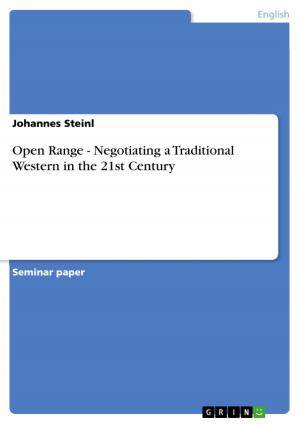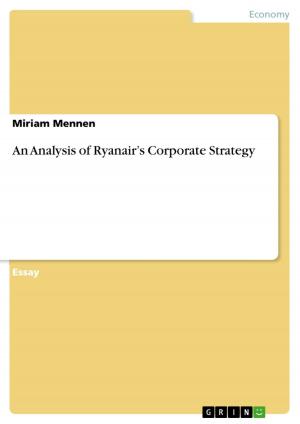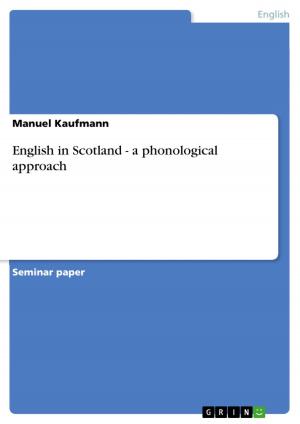Australian and New Zealand impact on the English language
Nonfiction, Entertainment, Drama, Anthologies| Author: | Andreas Hennings | ISBN: | 9783638253178 |
| Publisher: | GRIN Publishing | Publication: | February 11, 2004 |
| Imprint: | GRIN Publishing | Language: | English |
| Author: | Andreas Hennings |
| ISBN: | 9783638253178 |
| Publisher: | GRIN Publishing |
| Publication: | February 11, 2004 |
| Imprint: | GRIN Publishing |
| Language: | English |
Seminar paper from the year 2003 in the subject English Language and Literature Studies - Linguistics, grade: 2.7 (B-), University of Regensburg (Anglistics-American Studies), 8 entries in the bibliography, language: English, abstract: English is the most important language of the world today. Last century's quantum leaps in information technologies, like the Internet, enabled us for the first time in history to communicate with people from all over the world. The world-wide transfer of information in a global community requires a lingua franca, a language that is understood and can be used by everybody. Artificial languages, like Esperanto, have not attracted many learners - a language without a past can have no future. Instead, English and its numberless variants seem to be able to solve communication problems in the future. No other language is so widespread, so commonly understood around the globe. Obviously, the outstanding position of the USA in the fields of politics, economics, science, and - most important - popular culture like pop music and cinema has contributed to this fact. The British Empire has laid the fundament for this development by founding colonies all over the world, exporting their language even to the opposite side of the globe - Australia and New Zealand. Like everything else alive, languages in use are subject to change and development, especially in colonies, as new words are needed for new discoveries and ideas, or just to simplify communication with natives. Sometimes new ways of pronunciation come into fashion and spread until everyone has adjusted to them. In the course of the centuries, even completely new languages can come into existence this way. In this paper I will examine linguistic particularities of Australian English (AusE) and New Zealand English (NZE) to find out if they are languages of their own, creoles or just variants of English. In order to make their development better understandable, I will combine historical facts about colonists, natives and language developments with linguistic analyses of today's Australian and New Zealand English.
Seminar paper from the year 2003 in the subject English Language and Literature Studies - Linguistics, grade: 2.7 (B-), University of Regensburg (Anglistics-American Studies), 8 entries in the bibliography, language: English, abstract: English is the most important language of the world today. Last century's quantum leaps in information technologies, like the Internet, enabled us for the first time in history to communicate with people from all over the world. The world-wide transfer of information in a global community requires a lingua franca, a language that is understood and can be used by everybody. Artificial languages, like Esperanto, have not attracted many learners - a language without a past can have no future. Instead, English and its numberless variants seem to be able to solve communication problems in the future. No other language is so widespread, so commonly understood around the globe. Obviously, the outstanding position of the USA in the fields of politics, economics, science, and - most important - popular culture like pop music and cinema has contributed to this fact. The British Empire has laid the fundament for this development by founding colonies all over the world, exporting their language even to the opposite side of the globe - Australia and New Zealand. Like everything else alive, languages in use are subject to change and development, especially in colonies, as new words are needed for new discoveries and ideas, or just to simplify communication with natives. Sometimes new ways of pronunciation come into fashion and spread until everyone has adjusted to them. In the course of the centuries, even completely new languages can come into existence this way. In this paper I will examine linguistic particularities of Australian English (AusE) and New Zealand English (NZE) to find out if they are languages of their own, creoles or just variants of English. In order to make their development better understandable, I will combine historical facts about colonists, natives and language developments with linguistic analyses of today's Australian and New Zealand English.















